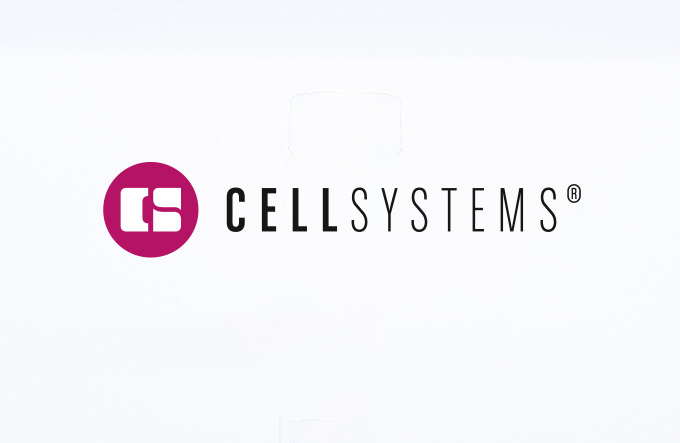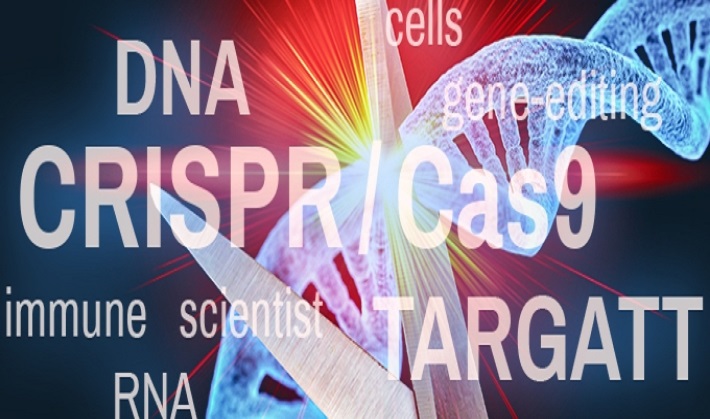Services & Products
iPSC Services & Products
We offer iPSC Generation, Disease Modelling & Correction, Differentiation, and Neurotoxicity Screening Services in collaboration with a globally recognized leader in in vitro and in vivo gene editing. Our partner is ISO 9001 and ISO 13485 certified and has developed more than 1,800 unique engineered cell line models with >98% projects completed to customer’s specification.
Additionally, TARGATT™ Human Induced Pluripotent Stem Cell (male or female) and HEK293 Master Cell Lines & Knock-in Kits are available, providing you with all the tools to quickly create cell lines for your studies with iPSCs that are ready for TARGATT™ knock-in and then differentiation into your desired cell type.
Genome Editing in iPSC
From precise gene knockouts to seamless transgene insertions, from point mutations to conditional overexpression, and even complex gene fusions: your vision is limitless—and so are your options with the available Genome Editing Services.
Several genome-editing platforms offer cutting-edge solutions for precise and efficient genome modification, enabling the creation of customized induced pluripotent cell (iPSC) lines with a range of applications, including but not limited to:
- Gene Knockout: Frame shift, Gene disruption, site-specific large fragment deletion
- Gene Insertion : Large or small transgene insertion, Reporter / tag knock-in
- Single Nucleotide Polymorphisms (SNPs): Point mutations
- Overexpression: Conditional or inducible gene expression, Gene overexpression
- Gene Fusion: Translocation, Inversion
The turnaround time depends on the selected service and starting iPSCs, ranging from 6 weeks to 4 months.
TARGATTTM Technology for stable Knock-in Modifications
TARGATT™ is a site-specific genome editing technology that enables highly efficient single-copy large DNA fragment insertion up to 20kb at a preselected safe harbor locus.
CRISPR-Cas9: Revolutionizing Gene Editing in Stem Cells
CRISPR-Cas9 Technology enables or correct genetic mutations in iPSCs knock-out (KO/ conditional KO), knock-in (KI) or point mutation. As one of the earliest CRISPR/Cas9 genome editing services providers, Applied StemCell has the experience and optimized protocols for Rapid Automated Cell Line Editing (RACE™) in induced pluripotent stem cells.
SSelect™: Precise, One-Step Gene Insertion
SSelect™ enables highly efficient, one-step site-specific integration of large DNA sequences—up to 20 kb—into a designated safe harbor genomic locus using the proprietary SSelect™ integrase. Unlike many other gene-editing methods, SSelect™ is effective in both dividing and non-dividing cells, making it a versatile tool for autologous, allogeneic, and genomic therapeutic applications.
Accubase
AccuBase technology is developed to facilitate base editing. Accubase editing has very high safety profile and low off-target events compared to other CRISPR / base editing technologies.
MAD7 Gene Editing
MAD7 technology is a royalty-free alternative with gene-editing capabilities similar to CRISPR-Cas9. It is an attractive option for both commercial and research applications and is ideally suited for generating knock-out (KO), knock-in (KI), or point mutations.
Further along your drug discovery pipeline, cGMP compliant iPSC gene editing and associated services are also available. Contact us for more information.
iPSC Differentiation Services
We offer the differentiation of induced pluripotent stem cells (iPSCs) into various lineages.
The available iPSC Differentiation Services include:
- High efficiency: non-integrating differentiation protocols for different lineages
- High purity: progenitor and lineage-committed cell lines as determined by lineage-specific biomarkers
- Differentiation from healthy/disease iPSC lines: customer cell lines, ready-made control iPSC lines, or genetically engineered iPSCs
- Isogenic cell line model development from parent iPSC line
- Development of co-culture and organoid (islet organoid) models with multiple lineages
Fast turnaround times of about 3-4 months
There is also a GMP iPSC Differentiation Service available. Contact us for more information.
iPSC Generation Services
iPSC Generation: Safe, Efficient, and Customized
Generating induced pluripotent stem cells (iPSCs) requires strong technical expertise to ensure robust, karyotype-normal, and pluripotent cells. This service is provided by our long-standing partner Applied StemCells, a specialist with over 15 years of expertise in stem cell technologies. High-quality iPSCs are typically generated within 2–3 months.
Tailored Reprogramming Methods
Various reprogramming approaches are available—retrovirus, lentivirus, episomal plasmid, and synthetic mRNA—to best suit your cell type and research needs.
Key Features
- High success rate (>95% efficiency)
- Wiede selection of donor cell types:
- Human (PBMCs, fibroblasts, HSCs, MSCs, CD34+ cord blood, urine, …)
- as well as non-human cells
- Flexible protocols: Feeder-free or feeder-dependent
- Comprehensive characterization
- Fast Turnaround: 2-3 months
The generated iPSCs are well-suited for basic research, drug discovery, screening, and preclinical development. A GMP-compliant iPSC Generation Service is also available.
Contact us for more detailed information or to discuss your specific project requirements!
!
-
ActiCells™ RUO TARGATT™ Hypo hiPSC Knock-in Kit
Cat.-Nr: AST-9650
ActiCells™ RUO TARGATT™ Hypo hiPSC Knock-in Kit Rapidly advance your allogeneic development with a hypoimmunogenic iPSC platform that... Read More
-
ActiCells™ RUO Hypo hiPSCs
Cat.-Nr: ASE-9550
Accelerate your allogeneic development by starting with a hypoimmunogenic iPSC platform reprogrammed from CD34+ cord blood cells. ... Read More
-
Astrocytes Differentiation Service from iPSC
Cat.-Nr: ASC-8005
Applied StemCell is a leader in iPSC technologies and applies established protocols for the differentiation to a specific celltype.
-
Cardiomyocytes Differentiation Service from iPSC
Cat.-Nr: ASC-8003
Applied StemCell, an expert in stem cell and somatic differentiation technologies offers a high-quality yet affordable custom service to... Read More
-
CRISPR/Cas9 Conditional Knockout iPSC Service
Cat.-Nr: ASC-6013-2
Cell lines with a loss-of-function gene mutation is an invaluable tool for studying and understanding function of genes and gene products. But a... Read More
-
CRISPR/Cas9 Knock-in iPSC Service
Cat.-Nr: ASC-6013-4
Applied StemCell is a leader in both CRISPR genome editing and iPSC technologies. We offer a combination CRISPR iPSC/ ES Cell Genome Editing Service... Read More
-
CRISPR/Cas9 Knockout iPSC Service
Cat.-Nr: ASC-6013-1
Applied StemCell is a leader in both CRISPR genome editing and iPSC technologies. We offer a combination CRISPR iPSC/ ES Cell Genome Editing Service... Read More
-
CRISPR/Cas9 Point Mutation iPSC Service
Cat.-Nr: ASC-6013-3
Point Mutation Cell Lines mimic mutations seen in clinical specimens and are important in vitro disease models to understand role of genes in... Read More
-
Dopaminergic Neuron -mid Brain - Differentiation Service from iPSC
Cat.-Nr: ASC-8007M
Applied StemCell is a leader in iPSC technologies and applies established protocols for the differentiation to a specific celltype.
-
Dopaminergic Neuron Differentiation Service from iPSC
Cat.-Nr: ASC-8007
Applied StemCell is a leader in iPSC technologies and applies established protocols for the differentiation to a specific celltype.
-
Hematopoietic Progenitor Cell (HPC) Differentiation Service from iPSC
Cat.-Nr: ASC-8008
Applied StemCell is a leader in iPSC technologies and applies established protocols for the differentiation to a specific celltype.
-
Human ESC/iPSC Neural Crest Stem Cell Differentiation Service from iPSC
Cat.-Nr: ASC-8001C
Human ESC / iPSC Neural Crest Stem Cell Differentiation Service. We will differentiate your ESC/iPSC line into neural crest stem cells (NCSC) by... Read More
-
iPSC Disease Modeling - Drug Screening
Cat.-Nr: ASC-8901
Drug discovery and development for neurological disorders has lagged far-behind therapeutics for other disease areas.
-
iPSC Disease Modeling - Toxicology Testing
Cat.-Nr: ASC-8902
Traditionally, preclinical toxicology testing for small and large molecule bio-pharmaceutical compounds, chemicals for human consumption and use, and... Read More
-
iPSC Generation Service (Episomal)
Cat.-Nr: ASC-6023
iPSC Generation is a complex process that reprograms adult somatic cells into a pluripotent, embryonic stem cell-like stage. This requires extensive... Read More
-
iPSC Generation Service (Episomal) with Embryoid Body Formation
Cat.-Nr: ASC-6023E
iPSC Generation is a complex process that reprograms adult somatic cells into a pluripotent, embryonic stem cell-like stage. This requires extensive... Read More
-
iPSC Generation Service (Episomal) with Teratoma Formation
Cat.-Nr: ASC-6023T
iPSC Generation is a complex process that reprograms adult somatic cells into a pluripotent, embryonic stem cell-like stage. This requires extensive... Read More
-
iPSC Generation Service (mRNA)
Cat.-Nr: ASC-6022
iPSC Generation is a complex process that reprograms adult somatic cells into a pluripotent, embryonic stem cell-like stage. This requires extensive... Read More
-
iPSC Generation Service (mRNA) with Embryoid Body Formation
Cat.-Nr: ASC-6022E
iPSC Generation is a complex process that reprograms adult somatic cells into a pluripotent, embryonic stem cell-like stage. This requires extensive... Read More
-
iPSC Generation Service (mRNA) with Teratoma Formation
Cat.-Nr: ASC-6022T
iPSC Generation is a complex process that reprograms adult somatic cells into a pluripotent, embryonic stem cell-like stage. This requires extensive... Read More
-
Microglia Differentiation Service from iPSC
Cat.-Nr: ASC-8009
Applied StemCell is a leader in iPSC technologies and applies established protocols for the differentiation to a specific celltype.
-
Motor Neurons Differentiation Service from iPSC
Cat.-Nr: ASC-8001M
Motor Neuron Differentiation Service from iPSCs. We will differentiate your iPSC line by using our proprietary induction protocol.
-
Natural Killer (NK) Cell Differentiation Service from iPSC
Cat.-Nr: ASC-8018
Applied StemCell is a leader in iPSC technologies and applies established protocols for the differentiation to a specific celltype.
-
Neural Stem Cells (NSCs) Differentiation Service from iPSC
Cat.-Nr: ASC-8001
Neural Stem Cells Differentiation Service. We will differentiate your iPSC line into neural progenitor cells (NSCs) by using our proprietary... Read More
-
Oligodendrocytes Differentiation Service from iPSC
Cat.-Nr: ASC-8004
Applied StemCell is a leader in iPSC technologies and applies established protocols for the differentiation to a specific celltype.
-
Retinal Pigment Epithelium (RPE) Differentiation Service from iPSC
Cat.-Nr: ASC-8010
Applied StemCell is a leader in iPSC technologies and applies established protocols for the differentiation to a specific celltype.
-
Skeletal Muscle Differentiation Service from iPSC
Cat.-Nr: ASC-8013
Applied StemCell is a leader in iPSC technologies and applies established protocols for the differentiation to a specific celltype.
-
TARGATT™ HEK293 Master Cell Line & Knockin Kit (Academic Price)
Cat.-Nr: AST-1305
The TARGATT™ HEK293 Master Cell Line and Knockin Kit was designed for fast and site-specific knockin in HEK293 cells, using an easy-to-use gene... Read More
-
TARGATT™ Human Induced Pluripotent Stem Cell (hiPSC) Master Cell Line (Female) Knock-in Kit
Cat.-Nr: AST-1602
Quickly create the most relevant cell line for your studies with iPSCs that are ready for TARGATT™ knock-in and then differentiation into your... Read More
-
TARGATT™ Human Induced Pluripotent Stem Cell (hiPSC) Master Cell Line (Male) Knock-in Kit
Cat.-Nr: AST-1600
Quickly create the most relevant cell line for your studies with iPSCs that are ready for TARGATT™ knock-in and then differentiation into your... Read More
-
TARGATT™ Master Cell Line Generation Service (Custom)
Cat.-Nr: AST-6001
Applied Stem Cell Inc.’s proprietary TARGATT™ technology enables highly efficient site-specific gene insertion in mammalian cells and animals.
-
TARGATT™ Site-specific Knock-in iPSC Service
Cat.-Nr: AST-6012T
The TARGATT™ master iPSC line contains a "docking attP" site at a safe harbor genomic H11 or AAVS locus. Any genes of interest on an attB vector... Read More




